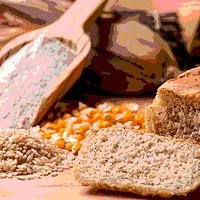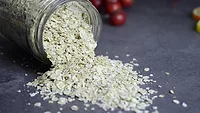Gluten-Free Products: What You Need to Know about International Requirements

Until recently, exporting gluten-free products to other countries has proved the exception rather than the rule for U.S. food manufacturers. Misconceptions about the global prevalence of celiac disease, a booming domestic market, and confusion over differing regulations have led many manufacturers to conclude that exporting gluten-free products just isn’t worth the effort. However, dietary changes and rising diagnoses of gluten-related disorders are creating new demand for gluten-free products in international markets. U.S. companies that want to meet this rising demand can successfully export gluten-free products if they understand local regulations for determining gluten thresholds, the country’s rules around oats, and requirements for labeling gluten-free products.
In the past 10 years, international demand for gluten-free products has grown significantly. As consumers in Asia and the Middle East have adopted a western diet, the prevalence of gluten-related disorders and diagnoses of celiac disease in these regions have been on the rise. At the same time, the availability of and access to gluten-free products has lagged, due in large part to a misconception that celiac disease primarily affects people of European ancestry. In fact, medical research demonstrates that the prevalence of celiac disease is 1 percent across the globe.
Meeting international demand for gluten-free products makes sound business sense, but deciphering the hodgepodge of regulations in multiple regions can be challenging. There is no single international regulation or threshold for gluten in gluten-free products, and different countries have adopted their own standards. For example, in the U.S., the U.S. Food and Drug Administration (FDA) requires foods labeled as gluten-free to contain less than 20 ppm of unintentionally added gluten. In Japan, the standard is 10 ppm, while Chile has adopted an extremely stringent threshold of 1 ppm, and Australia requires the presence of gluten to be “non-detectable.” Meanwhile, some smaller countries don’t have any regulations for gluten-free products, and labeling requirements in many developing nations have taken a back seat to securing a food supply for hungry populations.
In addition to varying labeling requirements, different countries have adopted contradictory stances on fermented and hydrolyzed products. For example, FDA recently concluded that no available testing methods can guarantee that fermented and hydrolyzed products are gluten-free. As a result, to be labeled gluten-free, these products must use starting materials that do not exceed the 20-ppm threshold. By contrast, the UK regulation follows the Codex Alimentarius guidance that a result of less than 20 ppm in the finished product, using an R5 enzyme-linked immunosorbent assay method, is sufficient to label a fermented or hydrolyzed product as gluten-free, even when produced from wheat, rye, or barley.
Because labeling requirements vary from one region to the next, food manufacturers should address two key questions before exporting gluten-free products to other countries. The first question is what threshold the destination country has adopted for labeling products as gluten-free. Beyond this consideration, manufacturers should verify the country’s protocol for products that contain oats. Although oats are inherently gluten-free, they are often shipped, stored, and packaged in facilities that process products containing gluten. As a result, the potential for cross-contact has led Canada to require that all oats in products labeled gluten-free be specially processed and named as “gluten-free oats” and has caused Australia to ban the use of oats in products labeled gluten-free.
For many food manufacturers, local distributors are the key to overcoming language barriers and understanding regional labeling requirements. A knowledgeable distributor can also clarify when there is a discrepancy between the way a law is written and how it is enforced. Because distributors play such an important role in translating labeling requirements, make sure you select partners who are familiar with local laws and have a base of operations in the countries where you’re exporting.
In addition to consulting with distributors, you can always conduct your own research or contact government agencies directly for information. In addition, certifying organizations like the Gluten-Free Certification Organization or the Association of European Coeliac Societies can provide a wealth of information.
Looking for quick answers on food safety topics?
Try Ask FSM, our new smart AI search tool.
Ask FSM →
As celiac disease and other forms of gluten sensitivity are diagnosed at higher rates around the globe, demand for gluten-free products will continue to grow, particularly in regions where access and availability limit consumer options. However, food manufacturers must conduct due diligence on international regulations when exporting gluten-free products. By engaging partners who understand regulations in the countries where you export, you can comply with local requirements and meet consumer demand for gluten-free products no matter where your customers live.
Laura K. Allred, Ph.D., is the regulatory manager for the nonprofit Gluten Intolerance Group’s Gluten-Free Certification Organization.
Jeanne Reid is the marketing manager for the nonprofit Gluten Intolerance Group.








